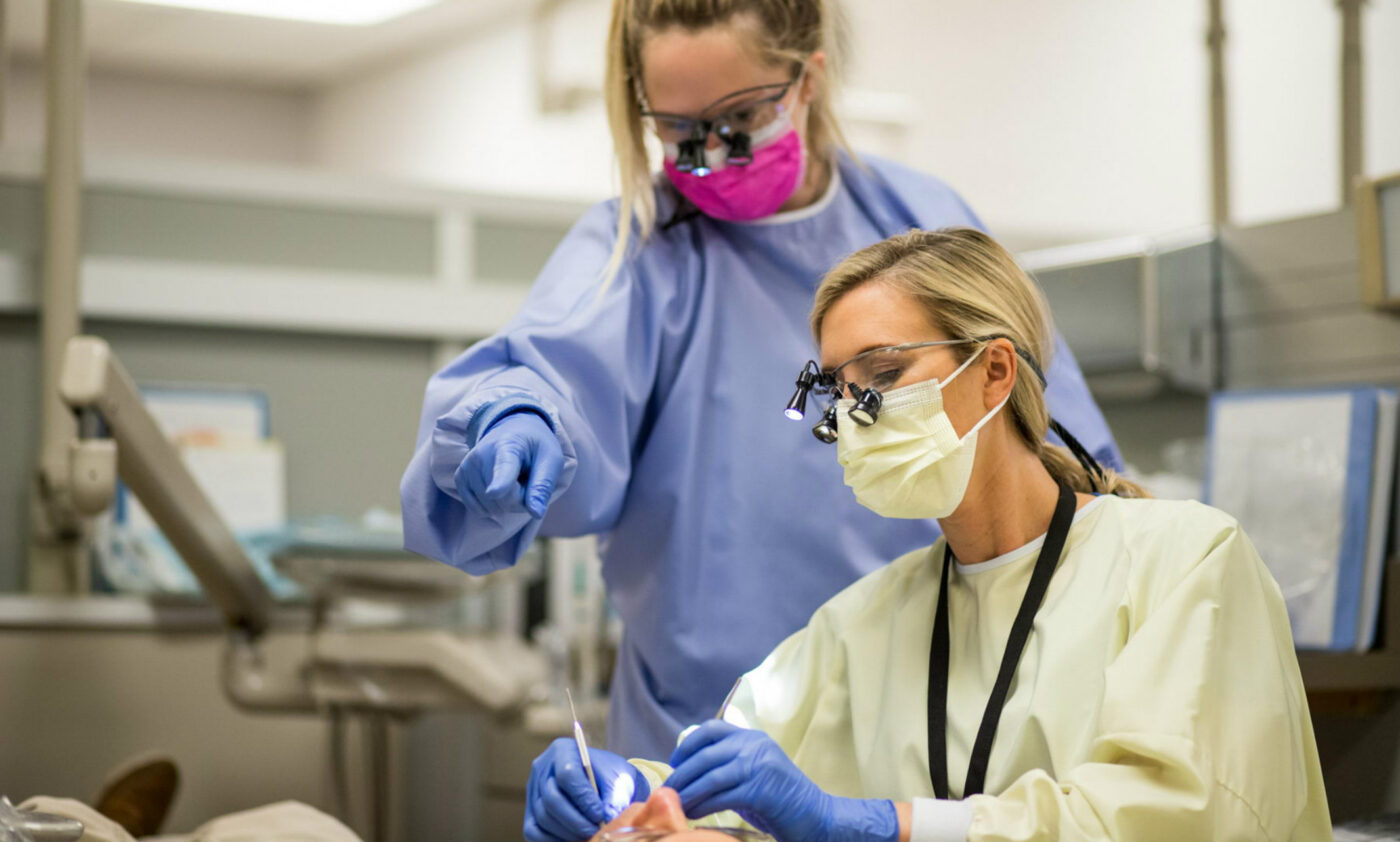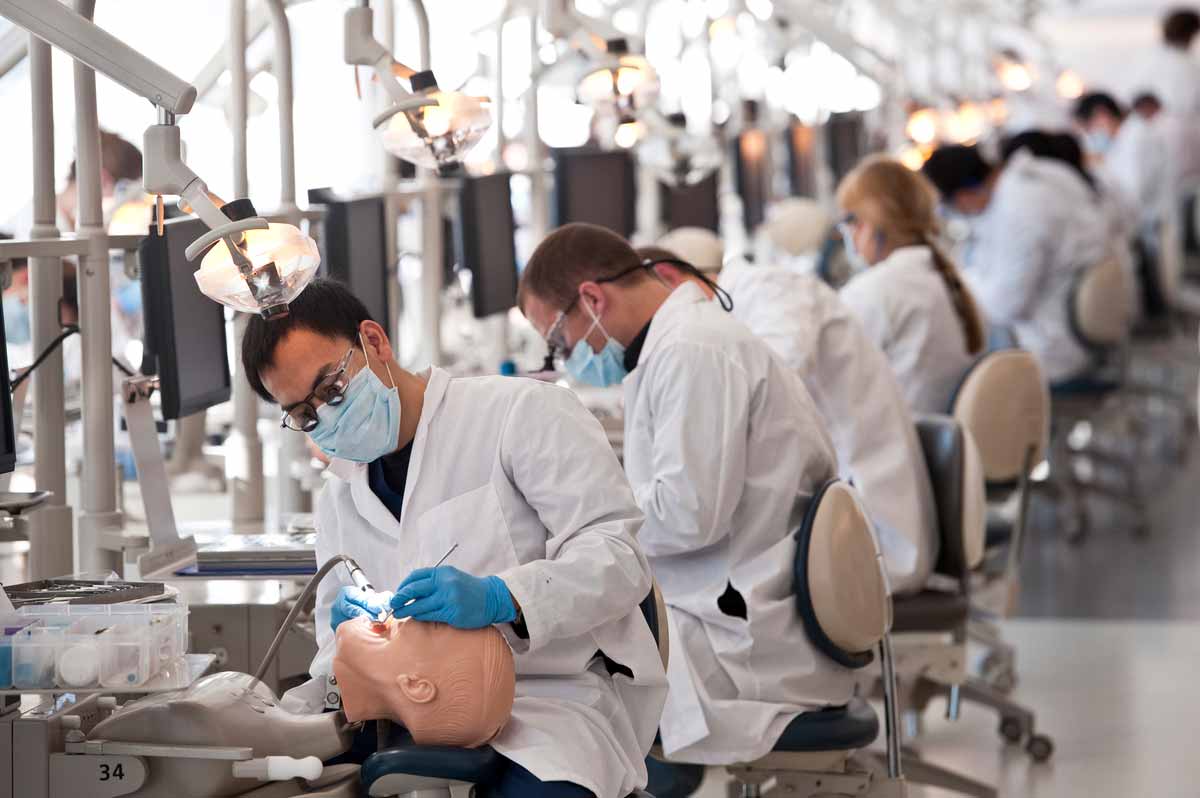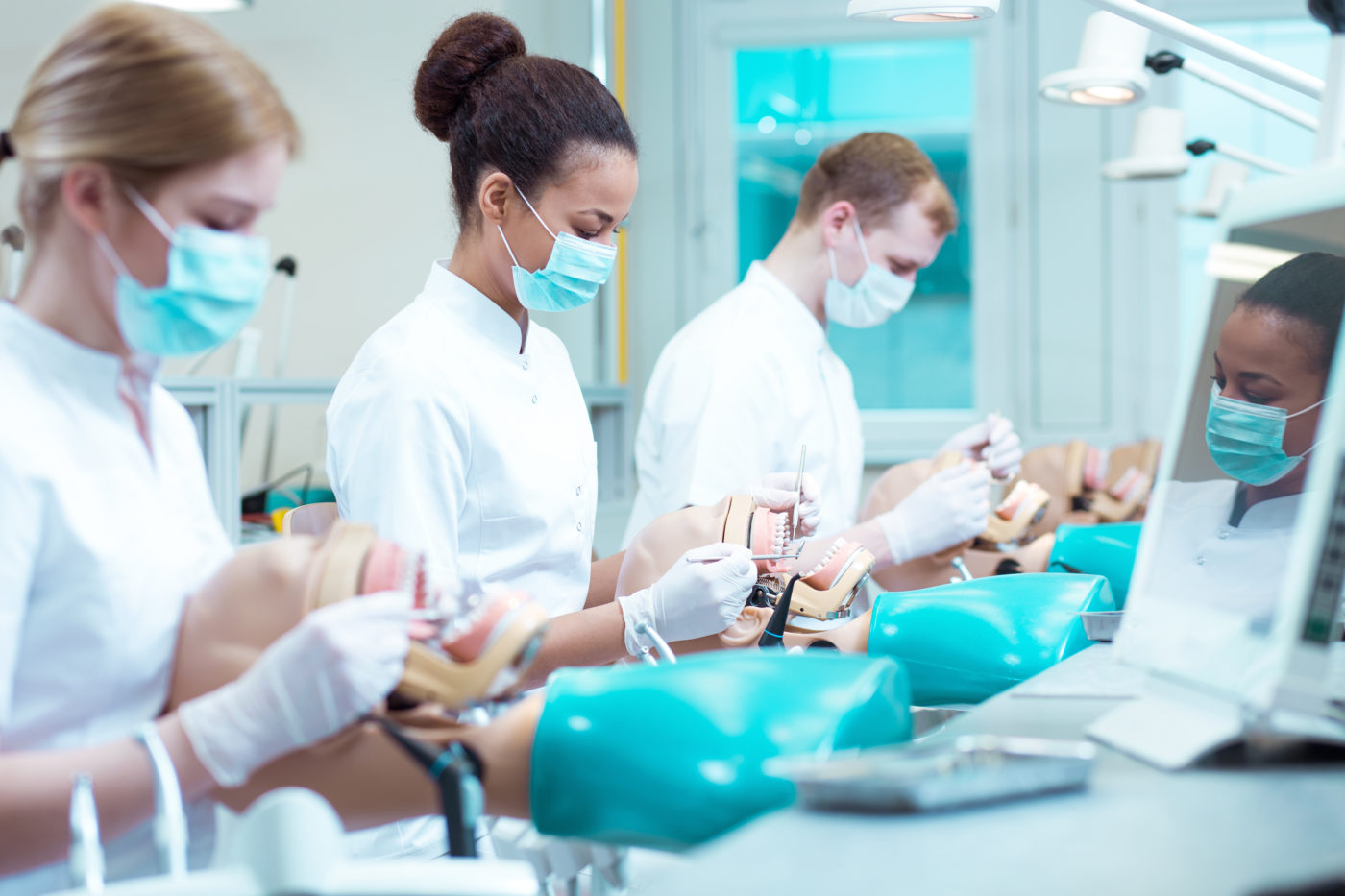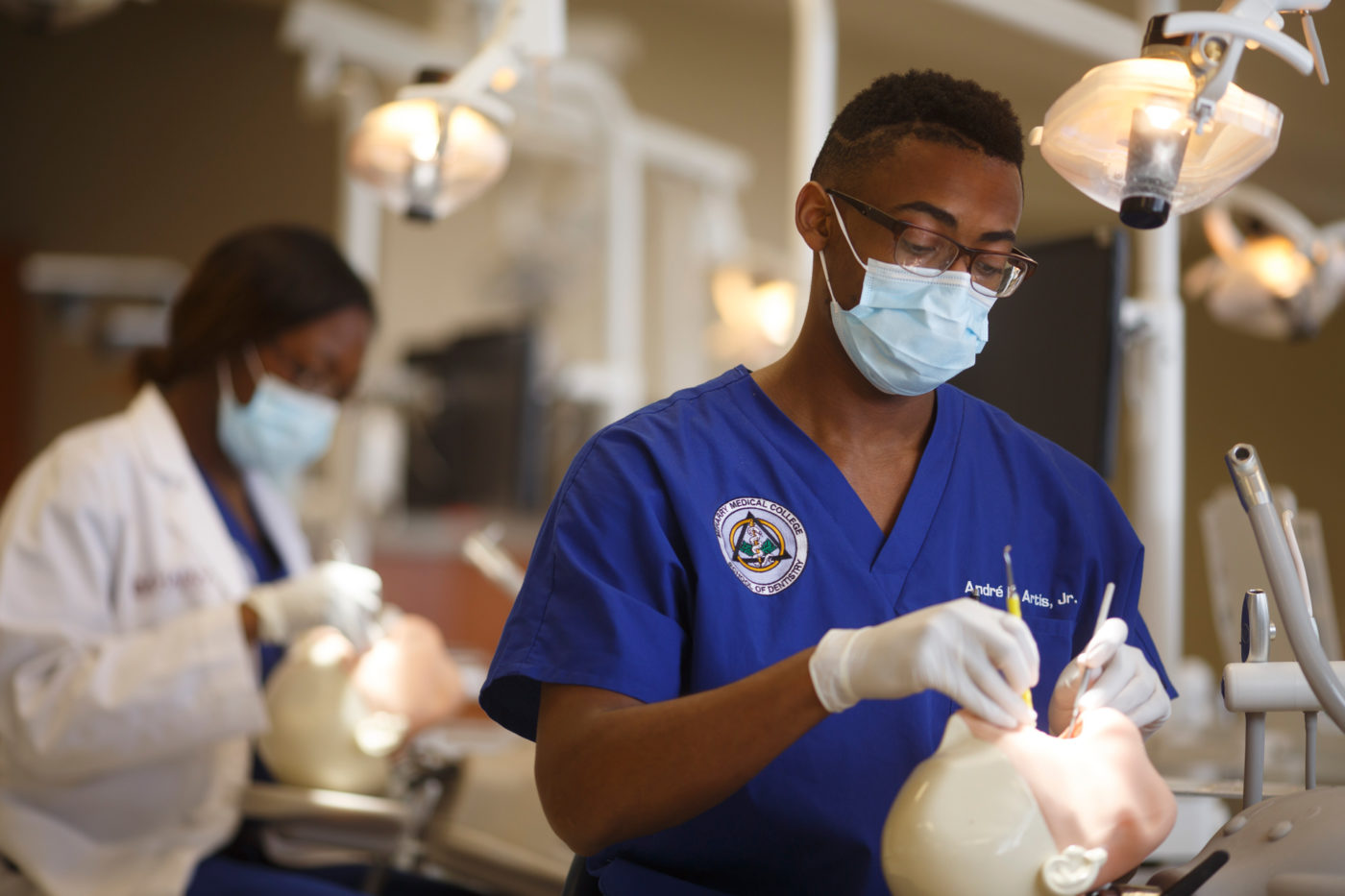Dentistry is basically the prevention, evaluation, diagnosis, and treatment of conditions, diseases, and disorders of the maxillofacial area, oral cavity, and other adjacent areas and the impact caused on the human body; offered by dentists within the scope of their education, training, professional ethics, experience, and in accordance with the applicable law.
Degrees in dentistry are categorized into two major categories:
- Doctor of Dental Surgery (DDS)
- Doctor of Dental Medicine or in Latin Dentariae Medicinae Doctoris (DMD)
These titles are awarded after graduation from an accredited dental school and allow the graduate to become a general dentist.
Is There a Distinction?
Whenever you visit a dentist, you will notice that he has either a DMD or DDS degree next to his/her name. You may be wondering what the difference really is. Is one degree better than the other? Well, we will find out.
DMD vs DDS
There has been confusion about the naming of the two degrees awarded to dentists. Every practicing dentist holds either one of the two degrees. Their names have either the prefix DMD or DDS. But what’s the distinction between the degrees?
The American Dental Association (ADA) creates no distinction between these two degrees. Any Dentist who holds either a DMD or DDS from an accredited dental school can practice in any general dental specialty as they are all highly trained in general dentistry.
Students pursuing these courses in dentistry have similar curriculums set by the ADA and receive the same training. This means that it is up to the dental school to decide whether they will award their dental graduates a DMD vs DDS degree.
Is One Degree Better Than the Other?
Might depend on your collegiate loyalties. Jokes aside, the difference between the two degrees has a history that dates back to 1983 when universities adopted different dental school programs with different names. Harvard Called its degree DMD, while Baltimore College of Medicine named its degree DDS.
Today, about one in every three dental schools award a DMD while the rest award a DDS. Since the American Dental Association has established specific licensing requirements and educational protocols for dental schools in the U.S, the education and training received at DMD vs DDS programs are basically identical across all schools. One is not better than the other.
Both use the same education curriculum set by the Commission on Dental Accreditation (CODA). State and the national licensing boards accept both degrees as equivalents, and both allow licensed dentists to practice across the entire scope of general dentistry.
So the question arises; how did all this confusion start?
The History of Dentistry
American dental schools initially granted DDS as the only degree in dentistry until 1867 when Harvard opened its school of dentistry. Harvard had a culture of offering degrees titled with Latin phrases, and they would not just disrespect this tradition with the opening of a dental school.
The Latin version for Doctor of Dental Surgery is “Chirurgae Dentium Doctoris,” and if the school adopted this name, the degree would be titled CDD. However, Harvard felt that the title CDD did not give an impressive tone. After lots of deliberation, Harvard Dental School came up with the abbreviation DMD, standing for “Dentariae Medicinae Doctoris,” in Latin.
DMD vs DDS: Education
Regardless of the university and what it decides to name its dental degree, one thing is guaranteed: For you to practice as a general dentist, extensive training and education are necessary. The first step is completing a four-year undergraduate program in medicine. You will then have to join an accredited dental school for another round of four years for further education, dental laboratory, and clinical training.
The initial two years in the school of dentistry are very similar to your initial two years in the undergraduate program. You will study immunology, biochemistry, pathology, and other related courses. The last two years in dental school will be entirely focused on laboratory and clinical practice.
After graduating from dental school with either a DMS or DDS, the dentists are subjected to a rigorous examination, which they must pass. In the United States, dentists must sit and pass the National Board Dental Examination, in addition to the state examination, for them to be licensed to practice as general dentists.
With such an extensive standard of education and rigorous examination requirements, you are guaranteed that any dentist with a DMD or DDS degree is well qualified.
Education After a DMD or DDS
Any dentist, whether they have a DMD vs. DDS after or before his name, is highly educated and trained as a medical professional. However, additional post-graduate education and training are necessary for one to upgrade to the level of a dental specialist in more advanced dentistry specialties.
It’s easy to tell when the DMD vs DDS has specialized training, as this will be indicated beside their name in addition to either DDS or DMD. In most cases, specialty programs award special certificates that do not come with additional abbreviations. This will greatly depend on the specialty program that one attends.
Some of the common dental specialties and their requirements are as follows:
Pediatric Dentistry – This program will require additional 25 months of training after graduating from dental school. Dentists in this field specialize in children’s oral health from infancy to adolescence. Individuals visit endodontic dentists for dental procedures such as root canals.
Endodontics – The program necessitates additional 26 months of training after completing dental school. Endodontic dentists specialize in the treatment of the dental pulp (the soft core of your mouth).
Periodontics – They specialize in the treatment of gum diseases. Training takes about 35 months.
Orthodontics – Specializes in the treatment of misaligned jaws, improper bites, and crooked teeth. Orthodontic dentists can install and monitor braces. Their training requires a year of residency after graduating from dental school.
Prosthodontics – These specialists help with the restoration of natural teeth, as well as replacing missing, lost teeth and oral structures with alternative artificial dentures. Training takes about 32 months after completing dental school.
Pathology, Radiology, and Oral-and-Maxillofacial Surgery – All these specialties call for years of specialized training and education after dental school. The length of training for oral and maxillofacial dentists depends on the specialty. Radiologists apply imaging solutions like X-ray in the diagnosis and management of oral disorders. Pathologists study diseases of the mouth, teeth, and surrounding regions. Surgeons conduct surgeries of the jaw and mouth and undergo the lengthiest training and schooling among them all.
Interest Areas in General Dentistry
The most interesting development in general dentistry is the well-defined body of evidence-based clinical and scientific knowledge underlying. It is a distinct, highly focused, and complex field of practice identified by advanced technology, techniques, knowledge, and procedures.
According to the American Dental Association, the public is better served when the dentistry profession is oriented chiefly to dentistry. Both the public and the professionals themselves benefit significantly when then interest areas are advanced and developed through research, education, and practice.
The rapidly evolving technologies and scientific discoveries provide more complex and sophisticated solutions to challenges faced in general dentistry. These advancements are changing and improving the dentistry industry. Interest areas in general dentistry practice must meet the definite Criteria for Recognition of Interest Areas in General Dentistry for them to be officially documented by the American Dental Association.
Internship Opportunities in Dental Practice
Did you know you can join a pre-dental education program? Also known as “Dentist Shadowing” or a Pre-Dentistry Internship, this program teaches aspiring dental students all the aspects of dentistry. The students are immersed in all facades of dental studies and practice. This includes education in cosmetic and general dentistry, patients’ psychological management, internet dentistry, dental practice software, dental practice management, and all dental specialties.
If you are considering becoming a dentist, a Pre-Dental Internships offer you an opportunity to gain practical, real-world experience and help you make an informed decision for your future career.





